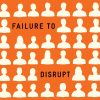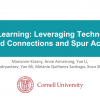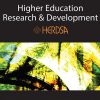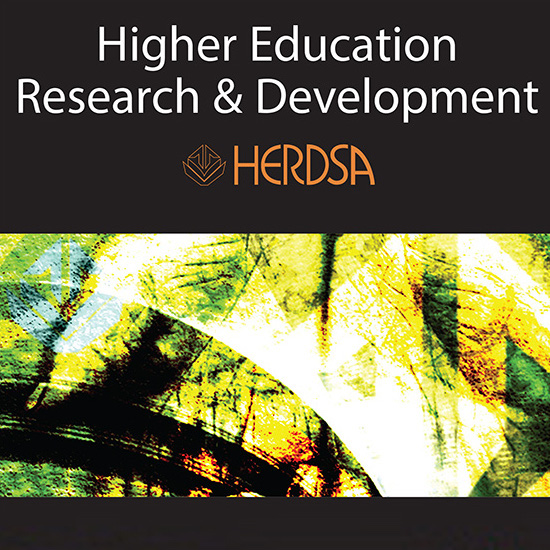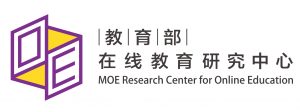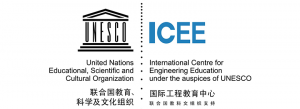Abstract:
The spread of the novel coronavirus at the start of 2020 shocked higher education across China then around the rest of the world. To ensure sustainability of learning, this required an unprecedented shift from campus-based to emergency online education. This created an urgent need to learn more about the quality of online education, the provision of global education, and the transformation potential of universities. This paper analyses these matters, presenting insights from large-scale research conducted on a leading Chinese university, the first ever major research university to make this substantial transition. This research applied a mixed methods design, which combines quantitative and qualitative approaches. The results provide important insight into the nature, quality, and outcomes of online learning in major Asian research universities. They signal critical areas that require reform to ensure the sustainability of future higher education.
Keywords:
COVID-19; online education; education evaluation; higher education
Authors:
Yang Liu, Yu Zhang, Weifeng Qiao, Lu Zhou, and Hamish Coates *
Institute of Education, Tsinghua University, Beijing 100084, China; liuyang2019@tsinghua.edu.cn (Y.L.); zhangyu2011@tsinghua.edu.cn (Y.Z.); qiaoweifeng@tsinghua.edu.cn (W.Q.); zhoul19@mails.tsinghua.edu.cn (L.Z.)
* Correspondence: hamishcoates@tsinghua.edu.cn
Share and Cite
Liu, Y.; Zhang, Y.; Qiao, W.; Zhou, L.; Coates, H. Ensuring the Sustainability of University Learning: Case Study of a Leading Chinese University. Sustainability 2020, 12, 6929. https://doi.org/10.3390/su12176929
References
- Jack, A.; Smyth, J. Coronavirus: Universities Face a Harsh Lesson. 2020. Available online: https://www.ft.com/content/0ae1c300-7fee-11ea-82f6-150830b3b99a (accessed on 22 August 2020).
- Qiu, Y. Special Dialogue on Online Education in the COVID-19 Response and Beyond. 2020. Available online: https://en.unesco.org/events/special-dialogue-online-education-covid-19-response-and-beyond (accessed on 22 August 2020).
- Coates, H.; Liu, L.; Zhong, Z.; Liu, L.; Hong, X.; Gao, X. International Innovation in Online Higher Education Services: Framing Opportunities in China; Online Education Services: Melbourne, Australia, 2019.
- Wong, E. New Insights into Contemporary Higher Education in the US: Framework of Online Program Management (OPM) Providers and Its Implication for China; Schwarzman College: Beijing, China, 2019.
- HolonIQ. Data-Driven Research. 2020. Available online: https://www.holoniq.com/research/ (accessed on 22 August 2020).
- Shanghai Ranking. Academic Ranking of World Universities 2019: China. 2019. Available online: www.shanghairanking.com/World-University-Rankings-2019/China.html (accessed on 22 August 2020).
- Shanghai Ranking. Shanghai Ranking’s Global Ranking of Academic Subjects 2019: Computer Science and Engineering. 2019. Available online: www.shanghairanking.com/Shanghairanking-Subject-Rankings/computer-science-engineering.html (accessed on 22 August 2020).
- Jing, M. Zhongguancun: Beijing’s Innovation Hub Is at the Center of China’s Aim to Become a Tech Powerhouse. 2018. Available online: https://www.scmp.com/tech/startups/article/2172713/zhongguancunbeijings-innovation-hub-centre-chinas-aim-become-tech (accessed on 22 August 2020).
- Cantwell, B.; Coates, H.; King, R. (Eds.) Handbook on the Politics of Higher Education; Edward Elgar: Cheltenham, UK, 2018.
- Hazelkorn, E.; Coates, H.; McCormick, A. (Eds.) Research Handbook on Quality, Performance and Accountability in Higher Education; Edward Elgar: Cheltenham, UK, 2018.
- Radloff, A.; Coates, H. Doing More for Learning: Enhancing engagement and Outcomes. Australasian Student Engagement Report; Australian Council of Educational Research: Camberwell, UK, 2010.
- Radloff, A.; Coates, H.; James, R.; Krause, K. Development of the University Experience Survey (UES); Department of Education, Employment and Workplace Relations: Canberra, Australia, 2012.
- Coates, H.; Croucher, G.; Moore, K.; Weerakkody, U.; Dollinger, M.; Grosemans, I.; Bexley, E.; Kelly, P. Contemporary Perspectives on the Australian Doctorate: Framing Insights to Guide Development. Available online: https://www.tandfonline.com/doi/full/10.1080/07294360.2019.1706451 (accessed on 22 August 2020).
- Griffin, P.; Coates, H.; McInnis, C.; James, R. The development of an extended Course Experience Questionnaire. Qual. High. Educ. 2003, 9, 259–266. http://dx.doi.org/10.1080/135383203200015111
- National Bureau of Statistics of China. The East, Middle, West, and Northeast Economic Area. Available online: http://www.stats.gov.cn/ztjc/zthd/sjtjr/dejtjkfr/tjkp/201106/t20110613_71947.htm (accessed on 22 August 2020).
- Ministry of Education of China. Work plan of the Ministry of Education in 2016. Available online: http://www.moe.gov.cn/srcsite/A02/s7049/201602/t20160205_229509.html (accessed on 22 August 2020).
- Kentnor, H.E. Distance education and the evolution of online learning in the United States. Curric. Teach. Dialogue 2015, 17, 21–34.
- Yuan, L.; Powell, S.J.; Olivier, B. Beyond MOOCs: Sustainable Online Learning in Institutions; Centre for Educational Technology, Interoperability and Standards (Cetis), 2014. Available online: https://publications.cetis.org.uk/2014/898 (accessed on 22 August 2020).
- Palvia, S.; Aeron, P.; Gupta, P.; Mahapatra, D.; Parida, R.; Rosner, R.; Sindhi, S. Online education: Worldwide status, challenges, trends, and implications. J. Glob. Inf. Technol. Manag. 2018, 21, 233–241. http://dx.doi.org/10.1080/1097198X.2018.1542262
- Thorpe, M. Rethinking learner support: The challenge of collaborative online learning. Open Learn. J. Open Distance E Learn. 2002, 17, 105–119. http://dx.doi.org/10.1080/02680510220146887a
- Castaño Muñoz, J.; Redecker, C.; Vuorikari, R.; Punie, Y. Open Education 2030: Planning the future of adult learning in Europe. Open Learn.: J. Open Distance E Learn. 2013, 28, 171–186.
- Lemoine, P.A.; Richardson, M.D. Micro-credentials, nano degrees, and digital badges: New credentials for global higher education. Int. J. Technol. Educ. Mark. (IJTEM) 2015, 5, 36–49. http://dx.doi.org/10.4018/ijtem.2015010104
- Coates, H. Next Generation Assessment. Available online: https://www.ncsl.org/research/education/next-generation-assessments.aspx (accessed on 22 August 2020).
- Coates, H.; Zlatkin-Troitschanskaia, O. The governance, policy and strategy of learning outcomes assessment. High Educ. Policy 2019, 32, 507–512. http://dx.doi.org/10.1057/s41307-019-00161-1
- Zhao, F. Enhancing the quality of online higher education through measurement. Qual. Assur. Educ. 2003, 11, 214–221. http://dx.doi.org/10.1108/09684880310501395
- Dykman, C.A.; Davis, C.K. Online education forum-part three: A quality online educational experience. J. Inf. Syst. Educ. 2008, 19, 281.

